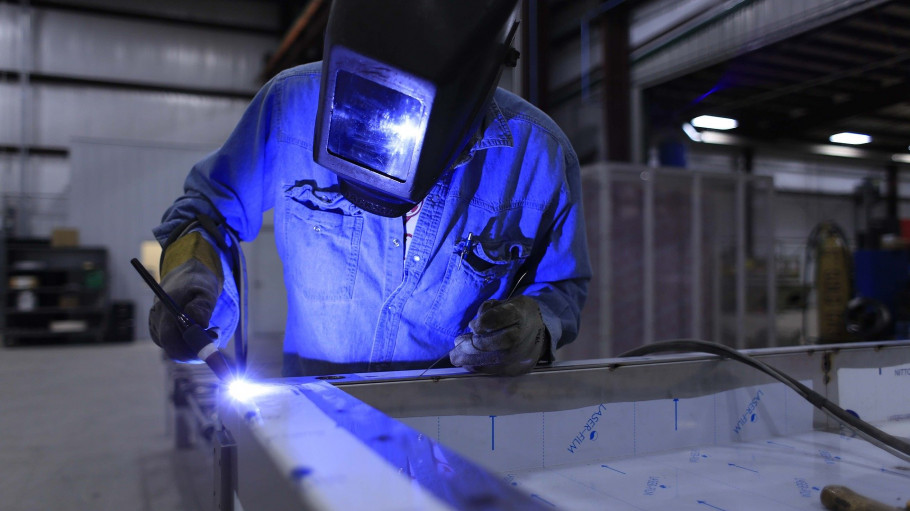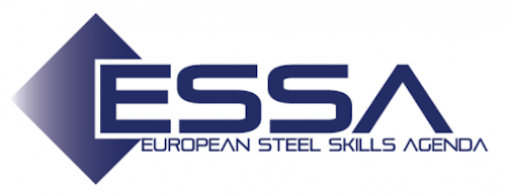
Issues » Sustainability » Social affairs and employment » European Steel Skills Agenda
European Steel Skills Agenda
EU Erasmus+
Downloads and links
Recent content

ESSA is realizing an industry driven, sustainable and coordinated blueprint for a European Steel Skills Agenda. A Blueprint strategy for human capital development through a Sector Skills Alliance (SSA) is delivered within a social innovation process involving a broad range of key stakeholders of the steel industry: companies, education and training providers, research institutions, social partners (European and national steel associations and trade unions) as well as sector experts).

Steel companies:
ThyssenKruppSteel Europe, ArcelorMittal (Poland, Spain), Salzgitter AG, Sidenor, BARNA (Celsa Group)
Education and training providers:
Steel Institute VDEh, IMZ, Scuola Superiore Sant'Anna, TKSE Training Centre, AM Spain, World Steel University
Steel associations and social partners:
EUROFER, ESTEP, industriALL Europe, World Steel Association, UNESID, Polish Steel Platform, German Steel Federation, European Cold Rolled Steel Association CIELFFA, Association of Finish Steel and Metal Producers, OS KOVO, Federacciai (Federazione Imprese Siderurgiche Italiane)
Research institutions:
TU Dortmund University, Cardiff University, University of Deusto, CSM/RINA, Visionary Analytics
Associated partners:
IndustriALL (European Industry Union), Industriarbetsgivarna (Swedish Industry Federation), ESTEP European Steel Technology Platform, Polish Steel Platform, Celsa Group (representing steel companies from France, Norway, Wales, Poland and Spain), Enrico Gibellieri (European Steel expert), Community (UK union), EIT Raw Materials
ESSA is setting-up an industry driven, sustainable and coordinated blueprint for a European Steel Skills Agenda at EU level and a rollout plan to the steel related Member States. Main objectives are
Economic, digital and technological developments, as well as increasing energy efficiency and environmental demands, present the European (and global) Steel Industry with many challenges, not least of which is to continuously update the qualification, knowledge and skill profile of the workforce. The aim of this project is to realise an industry driven, sustainable and coordinated blueprint for a European Steel Skills Agenda (ESSA) and address the aforementioned challenges in immediate and enduring ways. It will deliver a Blueprint strategy for human capital development through a Sector Skills Alliance (SSA) within a social innovation process involving a broad range of key stakeholders: companies, education and training providers, research institutions, social partners (European and national steel associations and trade unions) as well as sector experts. Building on the solid foundations provided by previous and ongoing sector level initiatives (e.g. ESTEP) and research (e.g. GT-VET) this project will deliver a consolidated approach for addressing industry skills demands and challenges, focused particularly on the people and skills necessary for a globally competitive industry. The project will develop concrete and practical strategies and programmes (modules and tools) in anticipation of skills demands.
Two principal objectives will be supported by an underpinning strategy framework:
The project is set up as a social innovation process integrating all the relevant stakeholders in a co-creation process and considering societal (social, economic, environmental) impact right from the beginning. Against this backdrop, the development of the ESSA Blueprint is engaged with the following activities:
This is done within eight work packages:
Brussels, 01/10/2025
With Europe’s steel industry at breaking point, industriAll Europe and the European Steel Association (EUROFER) held an emergency steel social summit to demand urgent action. Ahead of the announced Commission proposal addressing the impact of global steel excess capacity on the EU steel market, due by mid-October, the European social partners are united in calling for robust and effective trade measures. They also insist on fast and urgent implementation of the EU Steel and Metals Action Plan, especially concerning energy prices and demand. Maintaining the level of political ambition as promised in the EU Steel and Metals Action Plan is essential to restore steel’s competitiveness and save its green transition as well as steelworkers’ jobs across Europe.
New global reality requires disruptive thinking and innovative measures
An updated and extended analysis.